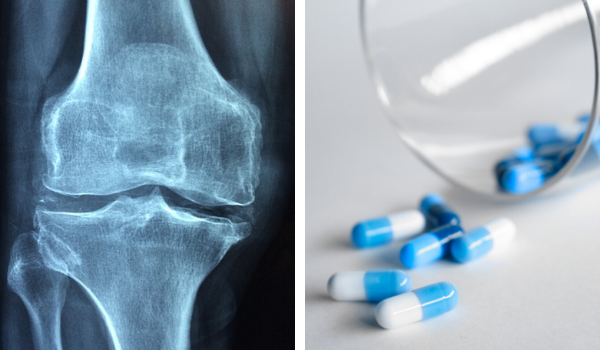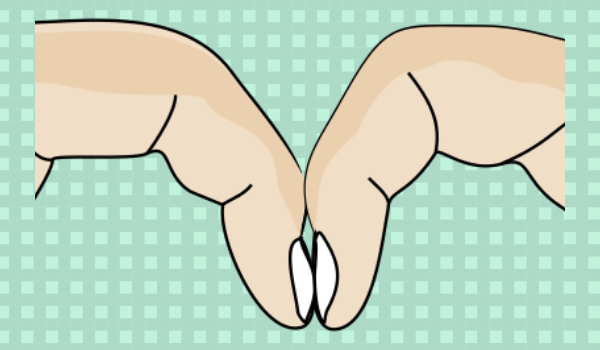Last updated on February 13th, 2023 at 04:39 pm

Osteoarthritis sufferer has new hope as scientists have developed a new drug that can arrest the bone degradation process in arthritis. Osteoarthritis is the most common chronic disease worldwide, this research gives new hope to millions.
The latest study was published online on Annals of Internal Medicine 1reveals that MIV-711 a novel drug has the capability to reduce bone and cartilage degradation in OA sufferer.
Let’s find out more about the research.
Pharma medicines for OA
Osteoarthritis is a progressive degenerative disease of bone and cartilage of joints. To date there are no effective pharmaceutical treatments for OA and the only long term management is lifestyle modification, exercises, and physiotherapy.
Pharmacological management includes NSAIDs and analgesics to control the symptoms of pain. Still, research finds that physiotherapy & exercise less prescribed over painkillers for OA by many doctors.
The present study is about a drug MIV-711 that can stop the degeneration process of OA and thus prevent the progression of arthritis.
Researchers already knew the beneficial effect of MIV-711 on bone and cartilage in preclinical osteoarthritis models.
Actually, MIV-711 is a novel selective cathepsin K inhibitor that functions by inhibiting the action of cathepsin K.
Cathepsin K is an enzyme (protease) present in bone osteoclast upon secretion results is the degradation of bone, further leading to osteoporosis and reduced BMD (Bone Mass Density).
The absence of cathepsin K activity in humans results in increased bone mineral density. Pharmacologic cathepsin K inhibition leads to continuous increases in bone mineral density for ≤5 years of treatment and improves bone strength at the spine and hip[zotpressInText item=”{5956979:BZ45VJF5}” format=”( %num%)”].
Research methodology
Scientists were curious to evaluate the efficacy, safety, and tolerability of MIV-711 in participants with symptomatic, radiographic knee osteoarthritis.
For which they recruited 244 participants from 6 European sites. All the participants have primary knee osteoarthritis, Kellgren–Lawrence grade 2 or 3, and a pain score of 4 to 10 on a numerical rating scale (NRS).
They all were exposed to one of these types of treatment.
- MIV-711, 100 or 200 mg daily, or
- Matched placebo (n = 77).
- Participants (46 who initially received 200 mg/d and 4 who received placebo) received 200 mg of MIV-711 daily during the extension substudy.
After 26 weeks of treatment, scientists evaluated the data upon these outcomes:
- The primary outcome was change in NRS pain score.
- The key secondary outcome was change in the bone area on magnetic resonance imaging (MRI).
- Other secondary end points included cartilage thickness on quantitative MRI and type I and II collagen C-telopeptide biomarkers.
Result
Changes in NRS pain scores with MIV-711 were not statistically significant (placebo, −1.4; MIV-711, 100 mg/d, −1.7; MIV-711, 200 mg/d, −1.5).
However, MIV-711 significantly reduced medial femoral bone area progression and medial femoral cartilage thinning versus placebo and substantially reduced bone and cartilage biomarker levels.
Nine serious adverse events occurred in 6 participants (1 in the placebo group, 3 in the 100 mg group, and 2 in the 200 mg group); none were considered to be treatment-related.
What does it mean for us
The study concludes that MIV-711 significantly reduced bone and cartilage progression with a reassuring safety profile. Surprisingly, there’s another research that reveals that humans also have the capability to regrow joint tissues like salamanders.
This new study hold promise for the future of osteoarthritis treatment, till the new drugs, reach to doctor’s chamber we must not ignore the importance of OA knee exercises and lifestyle modification.
Also read: Osteoarthritis: We Too Can Regrow Joint Tissues Like Salamanders|Study
The author is a physiotherapist who has been practising for the last 17 years. He holds a Bachelor's in Physiotherapy (BPT) from SVNIRTAR (Swami Vivekananda National Institute of Rehabilitation and Research), one of the prestigious physiotherapy schools in India.
Whatever he learns dealing with his patient, he shares it with the world through blogs and e-books. He also owns a YouTube channel, "Sunit Physiotherapist" with over 8 lakh active subscribers. Here, he shares everything he gets to learn serving the patient.





